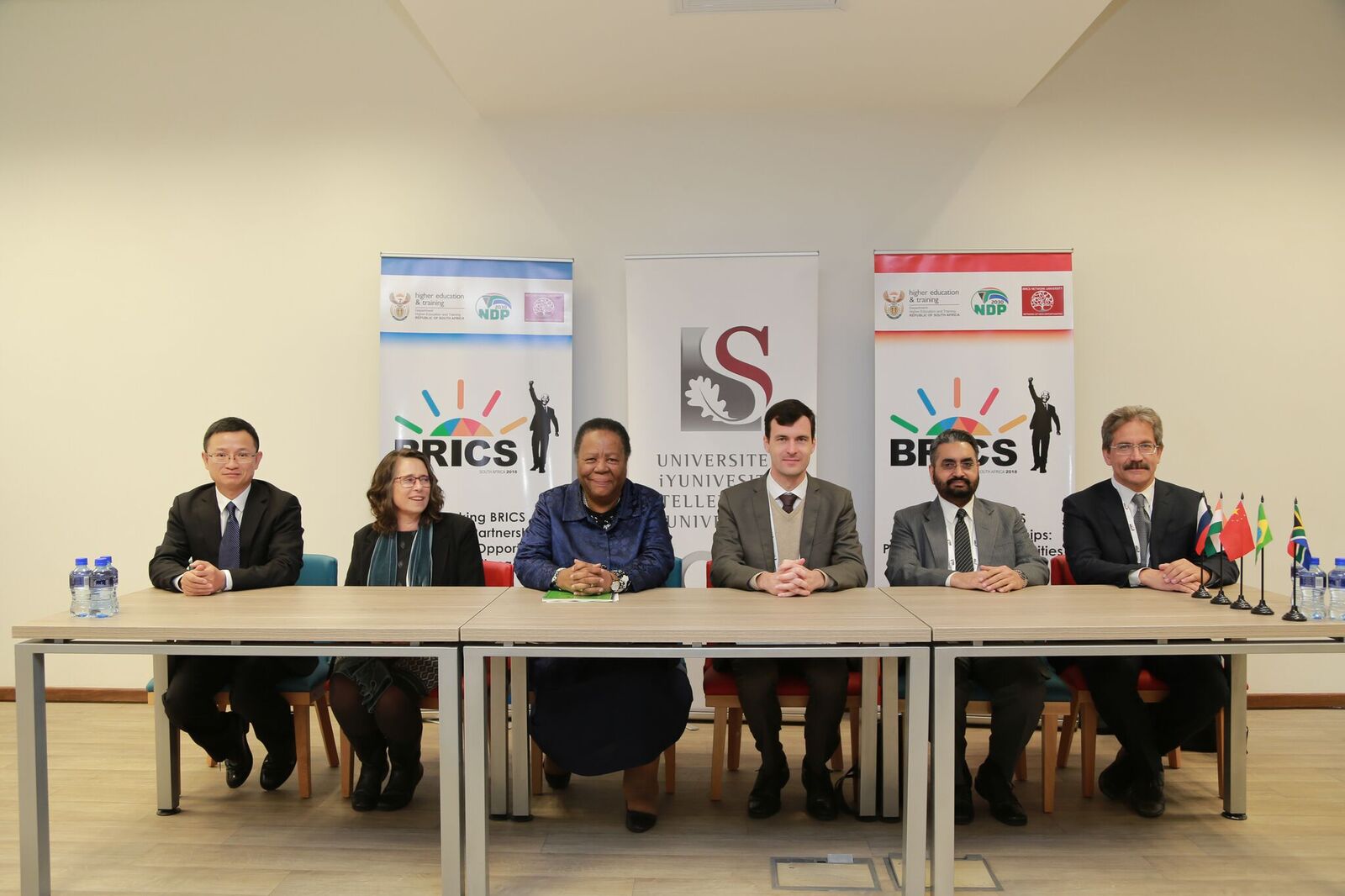Universities in Brazil, Russia, India, China and South Africa (BRICS countries) can help reduce poverty, unemployment and inequality in the developing world, said the Minister of Higher Education and Training, Naledi Pandor, at Stellenbosch University (SU) on Thursday (5 July 2018). She delivered the opening address at the third annual BRICS Network University Conference being held at SU from 5-7 July.
Themed “Unlocking BRICS Universities Partnerships: Postgraduate Opportunities and Challenges", the conference is organised jointly by the Department of Higher Education and Training and SU - one of 12 South African universities in this network.
Pandor, who received a Masters in General Linguistics (1997) and an honorary doctorate (2013) from SU, said universities in BRICS countries have what it takes to address many developmental challenges.
“If we work together effectively and with purpose, we can achieve our goal of becoming a powerful force for growth, development and discovery. We have enormous potential to bolster the existing strong political and economic ties between our countries."
“It is possible that we can use our joint efforts to join our colleagues in other sectors to combat diseases."
“We can be a formidable force for knowledge creation and knowledge exchange across our five countries and become a catalyst for the developing world and fundamentally alter the academic relationship that exists within the BRICS countries."
Pandor urged BRICS universities to advance in terms of innovation, the commercialisation of the work they do, international publications and the number of PhDs.
“Education is an important area for our collaboration in BRICS because of the many developmental challenges our countries are confronted with."
Pandor said she hopes South African universities take full advantage of the initiative and seek to collaborate in terms of research and student exchange.
Other speakers
Following Pandor's address, representatives from the other BRICS countries also addressed the delegates.
Mr Gustavo Brechesi Servilha from the Brazilian Ministry of Education said the BRICS Network University initiative has helped his country to get a better idea of what universities in other BRICS countries are doing.
“We need BRICS collaboration in education and science because we have shared problems like cyber security, poverty and climate change," said Prof Maxim Khomyakov, Vice-Director of the St. Petersburg campus of the Higher School of Economics University in Russia.
 He added that BRICS universities need collaboration to produce graduates with intercultural skills that the labour market demands.
He added that BRICS universities need collaboration to produce graduates with intercultural skills that the labour market demands.
Mr Daoyu Wang, First Secretary (Education) at the Chinese Embassy in South Africa, said the BRICS Network University helps to address the challenges in BRICS countries.
“Institutions of higher learning should take the opportunity to enhance cooperation between BRICS countries."
Mr Sukhbir Sandhu from the Department of Human Resource Development in India said universities in should do more to improve mobility of students in BRICS countries.
In her welcoming speech (click here for speech), Prof Hester Klopper, Vice-Rector: Strategy and Internationalisation at SU, said universities in BRICS countries are ideally placed to engage globally with issues and challenges facing us jointly and individually.
“As universities it is our role is to turn these challenges into research problems and academic programmes so that we can help find solutions to make the world a better place and produce human capital to advance society."
Referring specifically to SU's BRICS Collaboration Grant and the work of its centres of excellence and research chairs, Klopper said “we have many touch points with the priority research themes of the BRICS Network University."
Opening the conference, Prof Ahmed Bawa, Chief Executive Officer of Universities South Africa (USAf), said the BRICS Network University provides a powerful impetus for the development of new knowledge creating networks across the BRICS countries and thereby contributing to the reshaping of the geopolitics of knowledge and of knowledge production.
- Main photo: Minister Naledi Pandor addresses the delegates.
- Photo 1: Mr Daoyu Wang, Dr Diane Parker, Minister Naledi Pandor, Mr Gustavo Brechesi Servilha, Mr Sukhbir Sandhu and Prof Maxim Khomyakov at the conference. Photographer: Hennie Rudman

